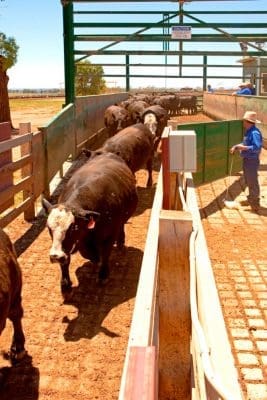MEAT & Livestock Australia has started the development of the cattle and livestock Levy Payer Register – a database of the details of individuals and organisations who pay red meat industry-specific transaction levies.
The register has been created to enable Rural Research & Development Corporations (RDCs), such as MLA, to “better understand and more effectively communicate and collaborate with their levy payers.”
 Many other agricultural industries have already established similar registers, including grains, wine and grape, sugar, and wool. However the legislation makes it clear that only Research & Development Corporations, and not peak industry councils (Cattle Council of Australia, Australian Meat Industry Council, Australian Livestock Exporters Council etc) are eligible to access the register.
Many other agricultural industries have already established similar registers, including grains, wine and grape, sugar, and wool. However the legislation makes it clear that only Research & Development Corporations, and not peak industry councils (Cattle Council of Australia, Australian Meat Industry Council, Australian Livestock Exporters Council etc) are eligible to access the register.
In 2018, the Federal Government passed legislation that gave the 15 RDCs the ability to establish Levy Payer Registers, allowing the Department of Agriculture (DAWE) to provide levy payer information to RDCs and the Australian Bureau of Statistics.
Since the introduction of the legislation, MLA said it has been engaging with DAWE, levy collection agents and the trade sector who submit levy transition returns as well as the software providers that support these businesses.
Up to now, agents have submitted to DAWE their monthly consolidated levies for each commodity transacted (cattle, sheep, lamb or goat).
From yesterday (July 1), the Levy Payer Register requires a more detailed list of who agents have collected levies from, the commodity (eg cattle, sheep, lamb or goats) and the levy amount.
Any businesses that transact levies on cattle, sheep or goats will be affected by this change, and should speak with their software provider to ensure they are prepared to submit the additional information.
As it is currently drafted in the legislation, ‘eligible recipients’ of levy payer information are the RDCs (in this case MLA) and the Australian Bureau of Statistics (ABS). The ABS cannot establish a Levy Payer Register but it can seek access to the data to perform any of its functions.
Once established, an RDC can use the levy payer information from their register for the specific purposes:
- to maintain a register of who has paid a levy and/or charge
- to maintain a register of persons eligible to vote in a poll conducted by, or on behalf of, the RDC
- to make public information of a statistical nature
- in performing its functions under law of the Commonwealth or under a contract or agreement with the Commonwealth
- to determine whether a person is or remains eligible to be a member of the RDC.
The legislation says levy payer information may not be used for purposes such as:
- agri-political activities
- increase the membership of an industry representative body
- an activity that would give a commercial advantage to a participant in the industry
- an activity unrelated to the function of the RDC.
Access to the levy payer information by a third party (ie, anyone outside of MLA) can only occur with the approval of the Secretary of the Department of Agriculture.
Click here to access the DAWE guide to who can access the levy, and under what terms.
Click here to access a backgrounder on use of levy payer information.
Source: MLA
